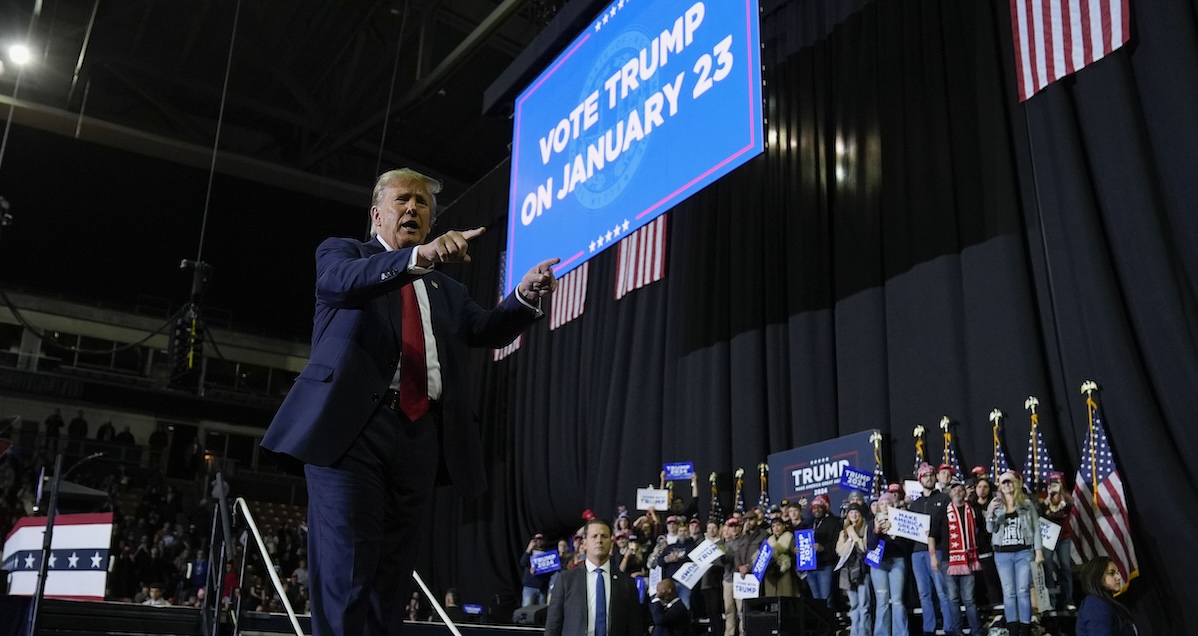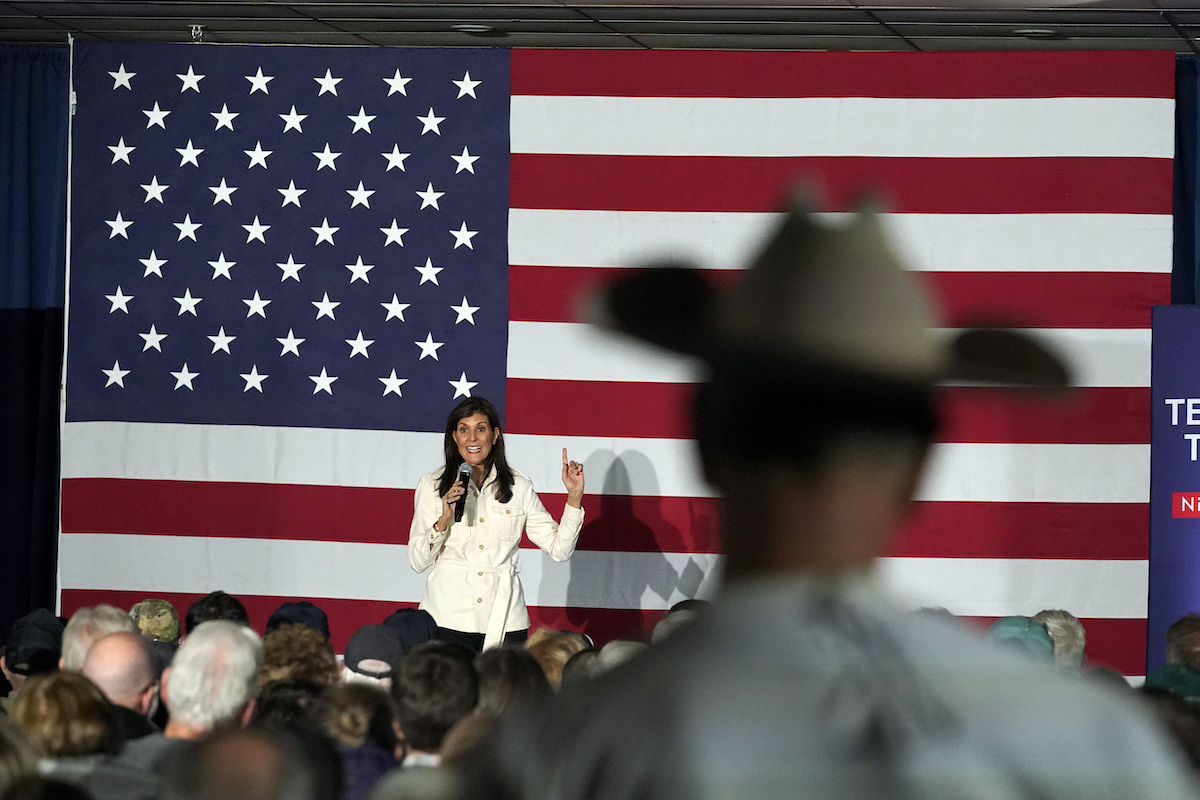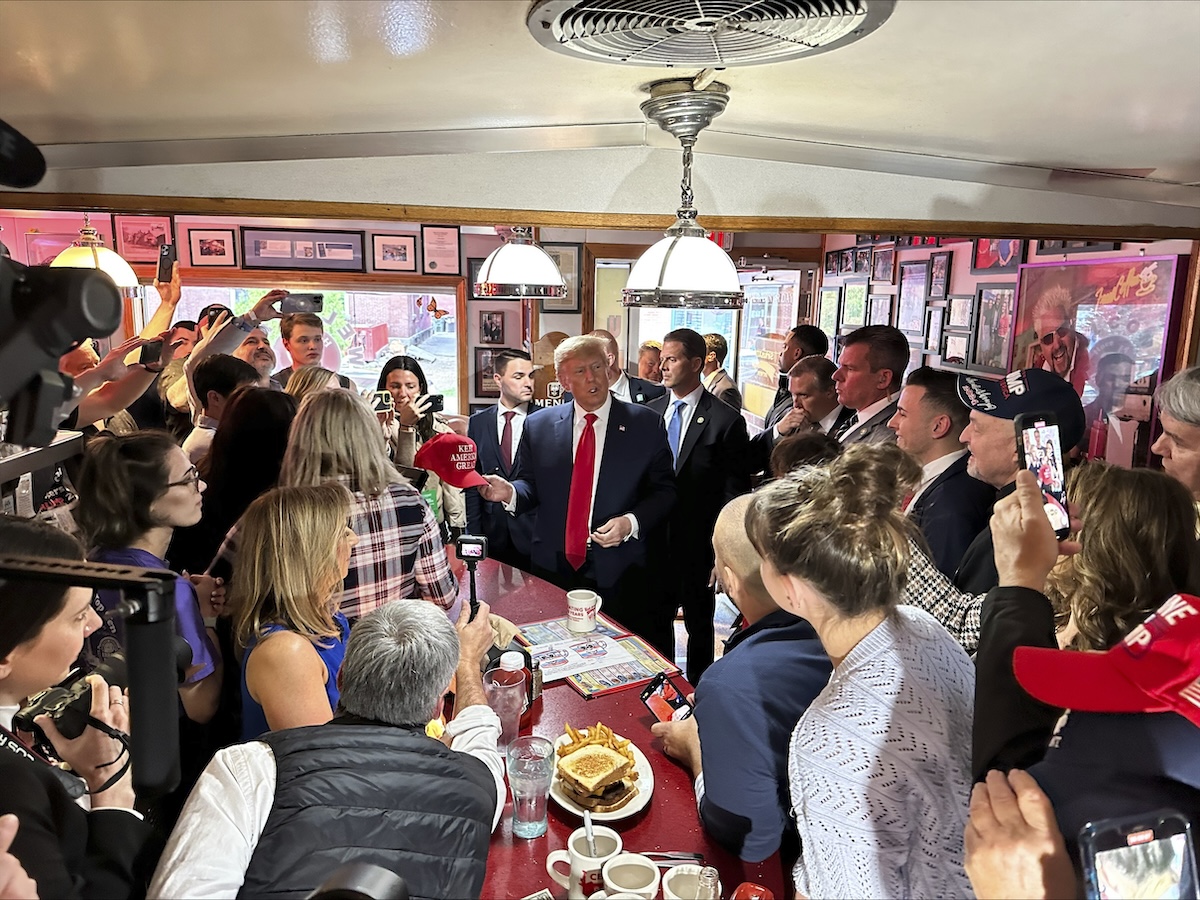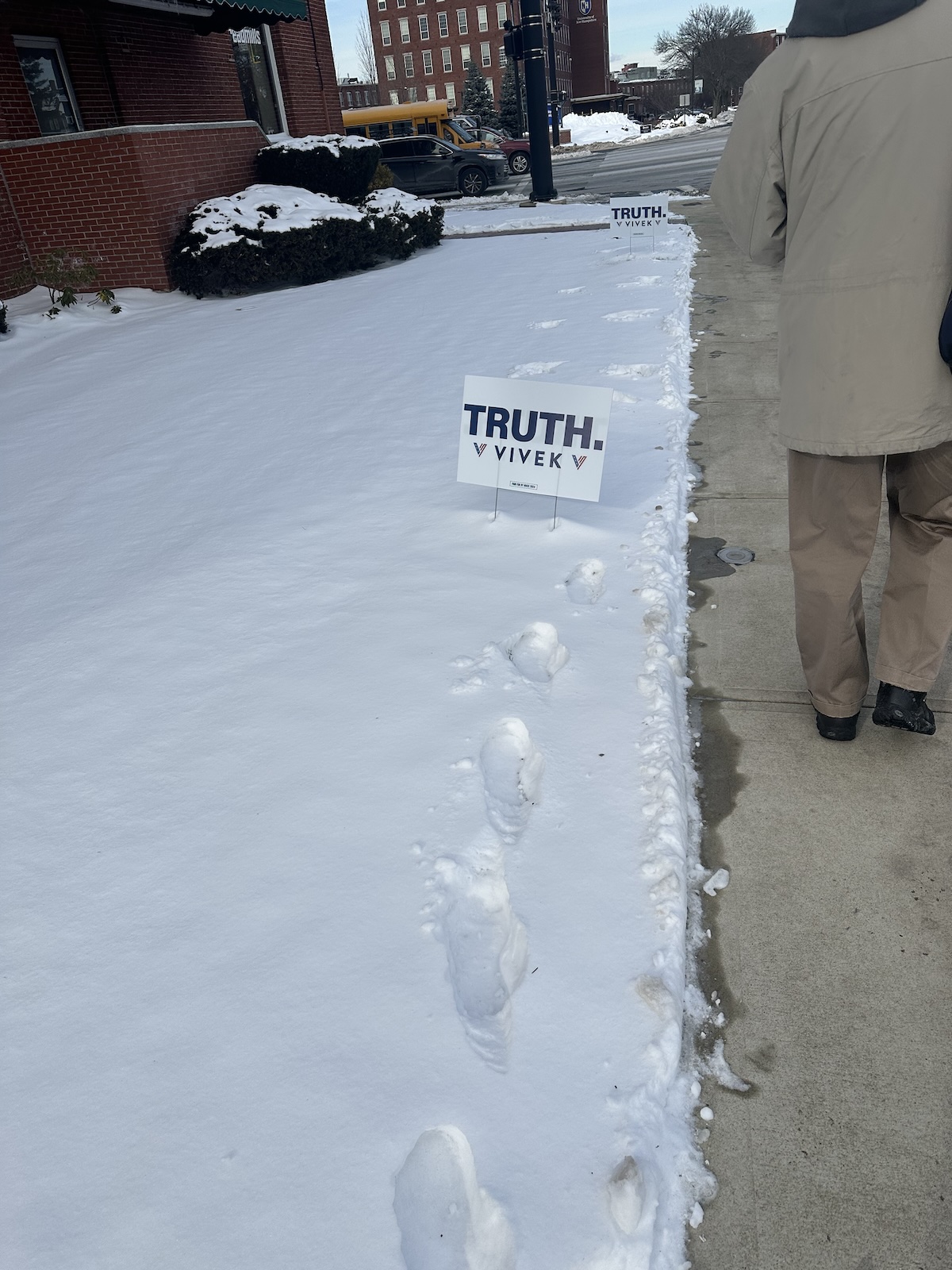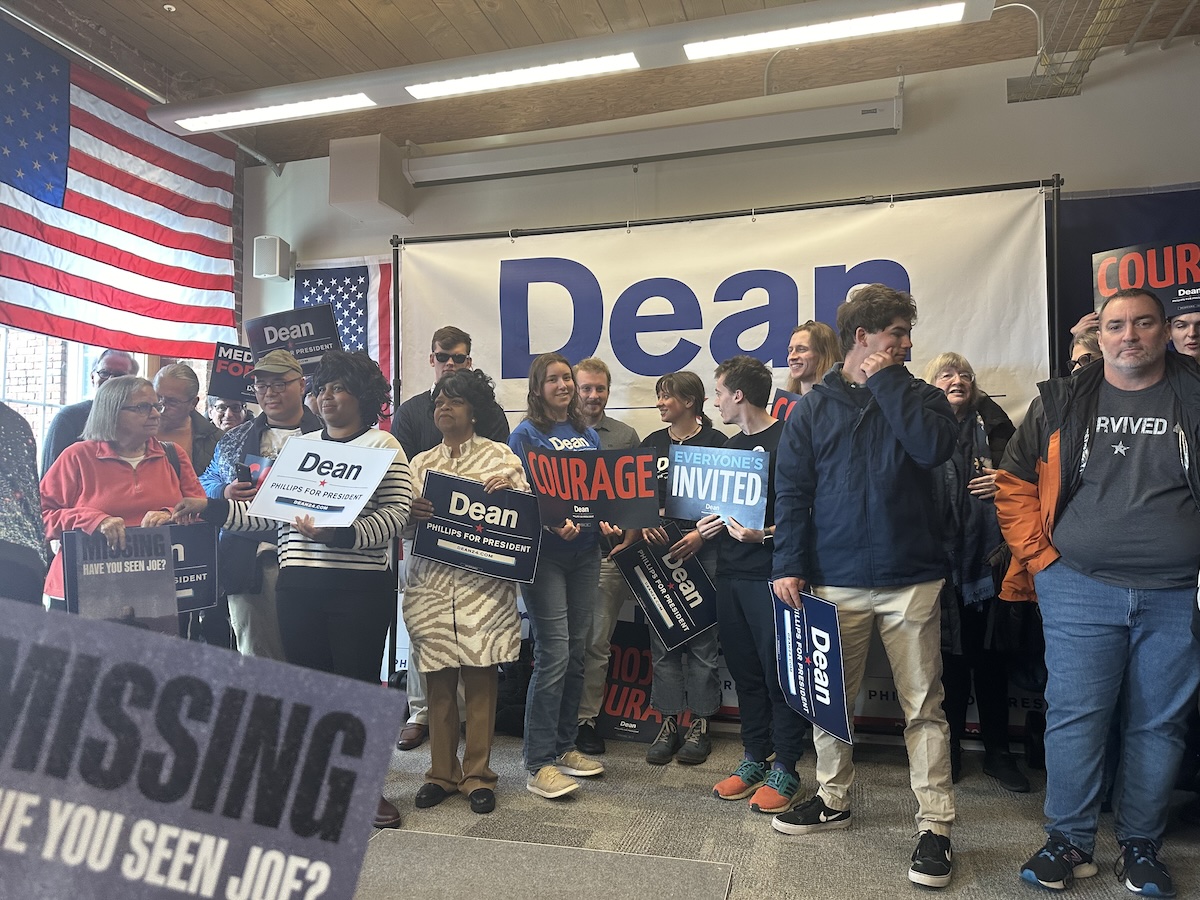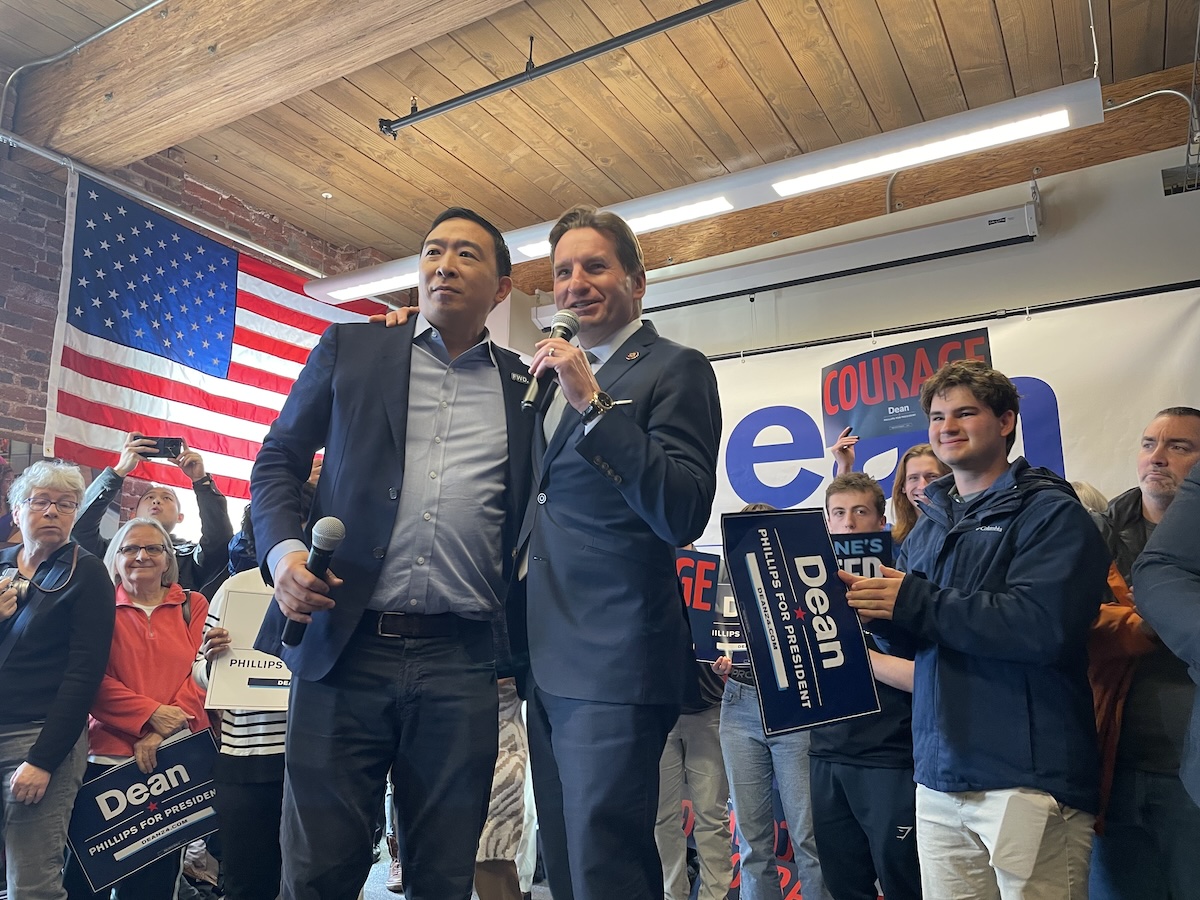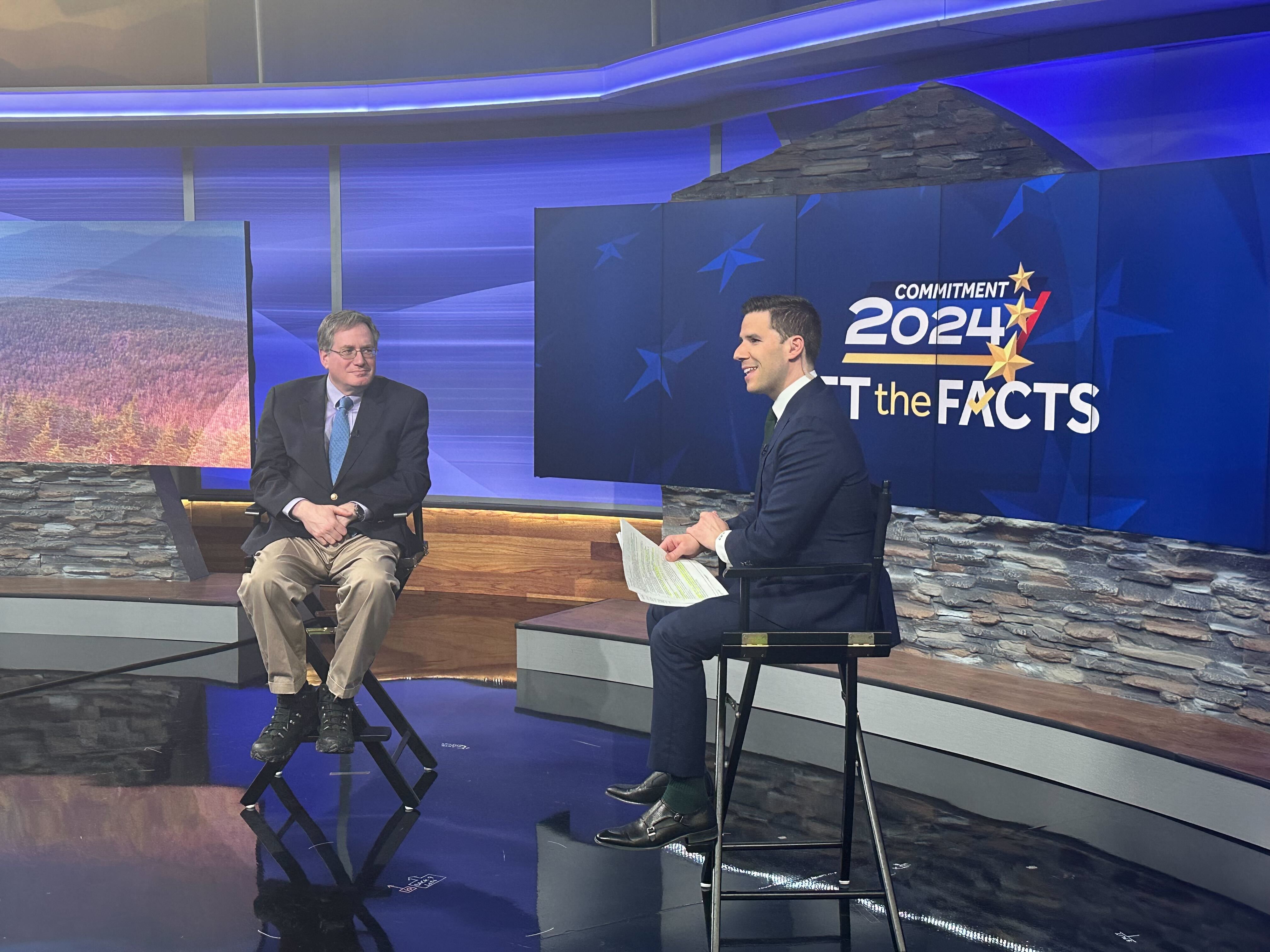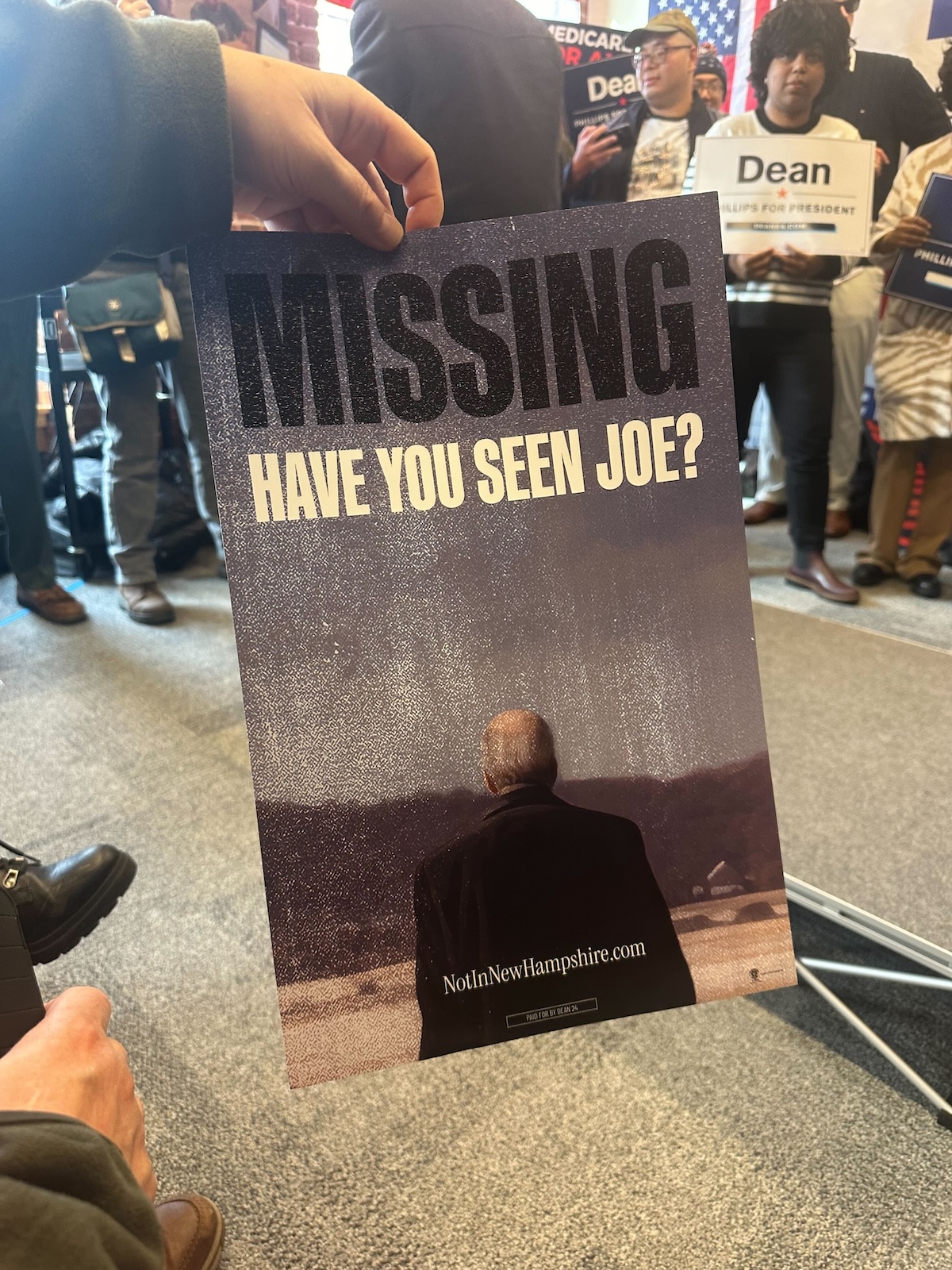As former President Donald Trump petitions the courts to be held legally immune for his actions as president, he’s begun comparing presidents and police officers.
In a Jan.19 Truth Social post, Trump argued that “a president of the United States must have full immunity, without which it would be impossible for him/her to properly function.” He added that immunity is needed even for “events that ‘cross the line,’” though he didn’t specify what he meant.
“You can’t stop police from doing the job of strong & effective crime prevention because you want to guard against the occasional ‘rogue cop’ or ‘bad apple,’” he wrote in all caps. “Sometimes you just have to live with ‘great but slightly imperfect.’” Police officers are protected against lawsuits related to their official actions, called “qualified immunity.”
Without “complete & total presidential immunity,” Trump wrote, “the authority & decisiveness of a president of the United States will be stripped & gone forever.”
Trump repeated the argument at a Jan. 20 Manchester, New Hampshire, rally and the following night in Rochester, New Hampshire, shortly before the state’s first-in-the-nation Republican primary.
A three-judge federal appeals panel is considering Trump’s immunity request. Regardless of that panel’s decision, the case could go before the U.S. Supreme Court.
Legal experts told PolitiFact that whatever the judicial ruling, Trump’s suggestion that he’s seeking what police officers already have is flawed.
“What Trump seeks goes far beyond” the protections police officers have, said Ilya Somin, a George Mason University law professor.
Trump’s campaign did not answer an inquiry for this article.
What is qualified immunity?
The legal protection that police officers and other government officials are afforded is known as “qualified immunity.” It is intended to protect officers conducting official duties not only from being held financially liable for their actions but also from being forced to face trial over those actions.
But as the “qualified” denotes, this type of immunity is not all-encompassing for key reasons:
-
It applies to civil cases, not criminal charges. “It has nothing to do with criminal liability,” said Joanna C. Schwartz, a UCLA law professor. If officers are charged with a crime, as happened with the officers in the 2020 death of Minneapolis resident George Floyd, they can stand trial.
-
In civil cases, accused officers have to invoke qualified immunity as a defense, and the judge may or may not grant them protection. The accused officer can still be pursued in a civil lawsuit if the judge decides that that officer acted incompetently or knowingly violated the law.
“If an action is deemed in direct violation of constitutional rights or illegal as known and understood by a reasonable person, qualified immunity would generally not apply,” said Jillian E. Snider, a retired New York City police officer and a lecturer at John Jay College of Criminal Justice.
Schwartz said the qualified immunity defense “is very strong, but it is not insurmountable.”
What kind of immunity is Trump seeking?
Trump’s lawyers have said in court that they are seeking much broader immunity than what police officers receive.
Trump “seeks full immunity, not just ‘qualified’ immunity,” Somin said. “And he is seeking immunity for criminal conduct, not just civil violations.”
During oral arguments Jan. 9 before the three-judge federal panel, one judge asked Trump’s attorney, D. John Sauer, whether the president should, hypothetically, be immune from prosecution for ordering U.S. Navy commandos to assassinate a political rival.
Sauer said that unless the president had been impeached first, such a prosecution would be invalid.
In his rallies and Truth Social post, Trump didn’t mention the caveat about impeachment, saying instead that presidents should have “complete & total presidential immunity.’
Even Karen M. Blum, an emeritus professor at Suffolk University Law School and self-described longtime critic of qualified immunity, said that qualified immunity has firmer legal support than what Trump seeks.
“Trump’s argument that no matter what, the president should be immune from any and all liability, civil or criminal, is not supported by any constitutional jurisprudence known to me,” Blum said.
